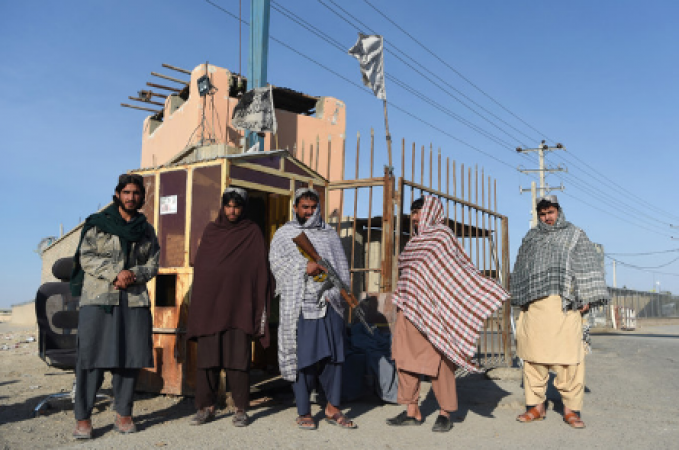
Washington: A number of military personnel from both sides have died as a result of recent border tensions between Iran and the Taliban government in Afghanistan, exposing both recent and deep-seated rifts between the two countries.
Although both governments have taken steps to swiftly defuse tensions, experts who spoke at a session sponsored by the Middle East Institute in Washington and attended by Arab News on Friday said that there is still a chance that war or a larger conflict could break out between the two nations.
According to experts, there are ingrained difficulties or sources of tension that may fluctuate in the future.
Also Read: Russian involvement in Ukraine's dam collapse is "highly likely," say international experts
These sources of tension include Iran's failure to formally recognise the Taliban government, the Taliban's anti-Iran stance, the demarcation of the border between the two nations, and water that flows from Afghanistan's Helmand River into Iran.
Expert on the two nations and non-resident senior fellow at the MEI Fatemeh Aman claimed that "Iran had never cut its ties with the Taliban," adding that Iran had provided the Islamic movement with weapons in an effort to increase its influence and oppose the US presence in the area during the American military occupation of Afghanistan.
In the years following the Iranian Revolution in 1979, she continued, "Iran's policies towards Afghanistan have not changed under any government that has come to power."
Aman argued that Iran is aware that a potential conflict with Afghanistan would not result in a straightforward victory, despite the problem with water flow.
Also Read: 'Better stay home,' say Kyiv's gloomy bomb shelters
Should a military conflict arise, she asserted that regional "spoilers" would also find a way to intervene against Iran.
Iran has three strategic and thematic interests in Afghanistan, according to Nilofar Sakhi, a non-resident senior fellow at the Atlantic Council: economic growth, security, and the Shiite-Sunni conflict.
She continued by saying that Iran does not want the unrest and instability in Afghanistan to spread to its side of the border and that Iran wants Afghanistan to serve as a bridge to the markets in Central Asia as well as a market for its own products.
Iran, according to Sakhi, lacks influence over and comprehension of the Taliban's internal dynamics, and it is essentially blind to these dynamics.
She countered, however, that Iranian policymakers believed that engaging the Taliban was in their best interests and would ensure that it did not fall behind in the region.
The session's moderator and director of the MEI's Iran Programme, Alex Vatanka, claimed that Iran had acted essentially carelessly towards Afghanistan, a neighbouring nation that has been unstable for years.
You would think that Iran would spend more time attempting to understand what is happening in Afghanistan, but they are occupied elsewhere in the Arab world, the speaker continued.
In addition to seeking recognition and financial support from the international community, he claimed that the Taliban were eager to defuse tensions in order to demonstrate to the world that they could make good neighbours.
"In some ways, climate change is the real factor here, much more so than Iran's or the Taliban's actions," he continued.
In order to resolve the issue, Iran and Afghanistan signed the Helmand River Water Treaty in 1973. It is still the only agreement that addresses the distribution of water from Afghan territories into Iran.
Also Read: Images of the attack in which Americans were pushed down a slope are sought by German police
Although the water problem predated the current governments, it was a seasonal problem, according to Andrew Watkins, a senior expert on Afghanistan at the US Institute of Peace. The Taliban permitted the flow into Iran to increase in the winter but to decrease in the summer